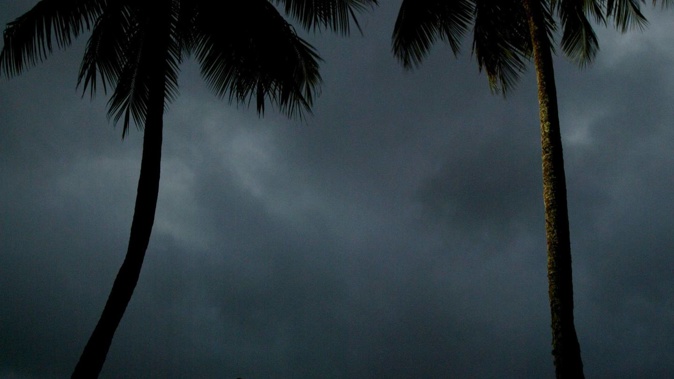

New Zealand's deportation policies are contributing to growing crime and drug addiction problems in the Pacific region, according to a newly released report.
The report shows that from 2013 to 2018, New Zealand deported 1040 people to Pacific nations, and 400 were criminals.
Report author Jose Sousa-Santos says the Pacific is also becoming a "casualty" of the greed of organised crime groups in New Zealand and Australia, including motorcycle gangs, and of the Tasman nations' appetite for illegal drugs.
He singles out the New Zealand-based Head Hunters gang as being active in the Cook Islands.
Sousa-Santos is a specialist in international crime and terrorism in the Australian Pacific Security College at the Australian National University.
In his analysis published by an independent Australian think-tank, the Lowy Institute, he said the deportation policies of New Zealand, Australia and the United States "are exacerbating crime and addiction within Pacific nations".
The report says criminal deportees are a "significant contributor" to the growth of transnational crime in the region, already at the centre of drugs trafficking from Asia, Mexico and South America towards lucrative markets in Australasia.
This trade, it says, is now spilling over into drug activity in the islands themselves. In Fiji, for example, there were 148 drug-related arrests in 2009 but this had risen to almost 1400 in 2019.
The report draws on figures from New Zealand's Ministry of Business, Innovation and Employment, which detailed the number of "criminal deportations" between 2013 and 2018.
Significant numbers were ejected for criminal offending to Samoa (145 over five years), Tonga (120) and Fiji (113). Fewer than 10 each were sent to Kiribati, Nauru, Tuvalu and Vanuatu.
Official figures for deportations after 2018 did not have a breakdown of how many were for criminal offending.
The Sousa-Santos report quoted an unnamed deportee to Tonga, who said: "I've never been here before [as an adult]. I don't speak the language. I grew up as a Kiwi. I don't know how to live here. I just want to go home."
The plight of the Tongan deportee invites parallels with the Australian policy of deporting New Zealand citizens who have fallen foul of the law, even if they have lived in Australia since childhood. Prime Minister Jacinda Ardern has been critical of that policy.
Another academic who has written on Pacific deportations, senior lecturer in politics and international relations Dr Timothy Fadgen of Auckland University, says that while New Zealand engages in "moralistic rhetoric" on the Australian policy, it "has engaged in a substantially similar practice with respect to its own deportees", many to Pacific countries.
Fadgen agreed with Sousa-Santos' conclusion that the deportation policies of New Zealand, Australia and the United States were acting as a "counter-force" to undermine development policies that the countries were pushing in the same region.
"They are contradictory in some ways," Fadgen said. "There is not a lot of coordination and collaboration."
Fadgen said New Zealand's Returning Offenders (Management and Information) Act, which is used to manage and monitor people deported from Australia, has been replicated by Samoa to deal with the deportees who have ended up there.
The Sousa-Santos study said most deportees arriving in Pacific countries from New Zealand, Australia and the US have criminal records.
Most are male, between 25 and 35 and have on average spent more than 12 years away from their countries of citizenship. A number of them bring their gang links from the host countries.
The report also said organised crime networks in Australia and New Zealand, including motorcycle gangs, have expanded their activities from their home countries into the Pacific.
The Prime Minister's office was approached to comment on how the criminal deportation of Pasifika people from New Zealand differed from Australia's deportations to New Zealand.
It referred inquiries to the office of Immigration Minister Kris Faafoi, which said New Zealand gave "careful consideration" to deportations, taking into account a range of factors that include individual and family circumstances.
But it retained the right to deport those who breached their visa and other legal responsibilities by which they can live and work in New Zealand.
Faafoi's office said New Zealand's law-enforcement and regulatory agencies worked internationally and nationally to reduce the impact of transnational organised crime, including the sale and supply of illegal drugs across the Pacific.
Take your Radio, Podcasts and Music with you









